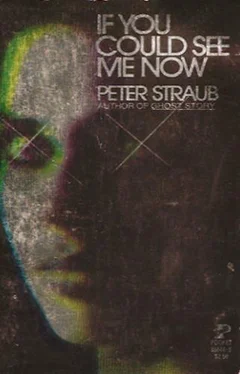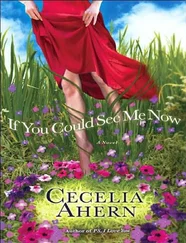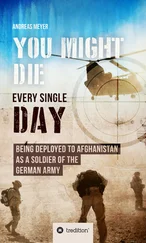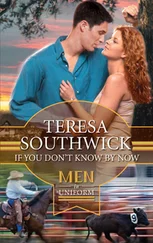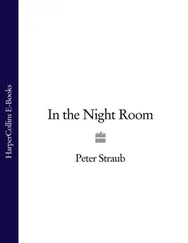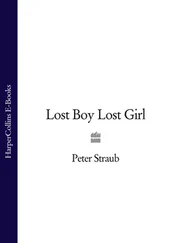“I’m asking you to save my life, Polar Bears.”
“Some might say that you’d be a whole lot safer dead, Miles.”
“Does Lokken know what you’re doing?”
I hear the wheeze of his coughing. “Dave had to go all the way to the other end of the county today. Funny thing.”
“Tell him to get out here now,” Duane says. “I can’t stand having you in the house any more.”
“Duane says you should come now.”
“Why don’t you and Duane keep up your conversation? Sounds real fruitful to me.” He hung up.
I turn around, still holding the receiver, and see Duane looking at me with dull eyes in a flushed face. “He’s not coming, Duane. He thinks you’re going to shoot me. He wants you to do it. He sent Lokken off on a wild goose chase so nobody will know how he arranged things.”
“You’re talking guff.”
“Did he tell you to bring a shotgun?”
“Sure. He thinks you killed those girls.”
“He’s more devious than that. He told me about Alison Greening. He told me what happened. He’d rather have me dead than in jail. If I’m dead, I’m still guilty of the killings, but I can’t talk to anybody.”
“You shut up about that,” he says, his arms swinging at his sides. “Don’t say one word about that.”
“Because you hate thinking about it. You couldn’t do it. You couldn’t rape her.”
“ Huh ,” Duane snorts, his face red and strained. “I didn’t come here to talk about this. I just wanted to hear you admit you put the dirtiest part of yourself into my girl. Do you think I liked beating it out of her?”
“Yes.”
“What?”
“Yes. I think you did enjoy it.”
Duane whirls and presses the palms of his hands against a kitchen cupboard, supporting his weight on his arms, as I had seen him do against the engine block of a tractor. When he turns around again he is doing his best to smile. “Now I know you’re crazy. Boy, that just says it all. Maybe I oughta kill you, like you say Hovre wants.”
“Maybe you should.” I am transfixed by his ghastly attempt at relaxation. His face is colorless now; it looks as though you could pluck gobbets off it, like clay. His personality, which I had thought as stolid and bull-like as his body, appears to be breaking up, shaking apart into its facets.
“Why did you let me come here at all?” I ask. “Why didn’t you write back to say that someone else was staying in the house? And why did you pretend to be friendly when I first came?”
He says nothing; he simply looks at me, dull and sullen anger expressed by every inch and angle of his body.
“I’m as innocent of the deaths of those girls as I was of the death of Alison Greening,” I say to him.
“Maybe that was the first warning you had,” Duane says. “I’m gonna be listening for the sound of that junker of yours, so you’d best sit tight until Hovre comes to get you.” Then a smile which appears almost genuine. “I’m gonna enjoy that.” His gray face breaks, alters, as a perception hits him. “By God, if I’d of had my shotgun here, I would have cut you in two.”
“Then Alison Greening would come for you tonight.”
“It don’t make any difference how crazy you pretend to be,” Duane says. “Not now it don’t.”
“No. Not now.”
When Duane left the farmhouse he said, “You know, my wife was as dumb as the others. That cow actually wanted it. She couldn’t even pretend she was better than that. She used to yammer about how dirty I got out in the fields, and I used to say the dirt on me is nothing compared to what’s in your mind. I just hoped she would give me a son.”
When dusk began to devour the landscape, I knew that I had approximately three hours to get where I had to go. I would have to walk. Duane would hear the car, and telephone Hovre. They did not belong where I was going. The alternative was to wait in the farmhouse and take every creak of the boards for the sign of her coming. No. If she were going to appear and spring the trap of our old vow, the Pohlson quarry, where it started, would be where it would end. I had to go back, alone, to where it had begun, to see it as it was on that night, without the Woodsman and Zack, to stand in darkness on those flat slabs of stone and breathe that air. I felt almost that if I stood on that spot again, I might go back to the beginning and reverse things: might find an echo of the living girl, and reclaim myself and her in that salvation. Duane and his furious repressions, Polar Bears and his schemes, were tiny in the light of this immense possibility. I forgot them both five minutes after Duane left the farmhouse. Starving Paul Kant had worked through the fields; so would I.
It took me a little more than a quarter of the time it had Paul. I simply walked along the soft verge of the highway, going in dying light where I had to go; once a rattling slat-sided truck passed me, and I veered off into a cornfield until its red taillights disappeared around a bend. I had a pervasive sense of invisibility. No clumsy hothead in a truck could stop me; no more than I could stop my cousin from asserting her claim. Fear sparkled beneath my skin; I walked quickly, scarcely aware of the gravel over which I moved; at the top of the long winding hill I touched the wood of the Community Chest sign and felt the dampness of woodrot. Lights burned in a farmhouse just visible in a black valley. For a second I had the sensation that I was about to leap from the hill’s sheer side and fly — a dream of the inhuman, a dream of escape. Cold hands brushed my sides and urged me forward.
At the base of the drive leading up the smaller hill to the quarry I paused for breath. It was just past nine o’clock. In the darkening sky hung the white lifeless stone of the moon. I took a step up the drive: I was a magnet’s negative pole, the lunar pole. My feet throbbed in their city shoes. A random branch of an oak stood out with supernatural, almost vocal clarity; a huge muscle rolled beneath its crust of bark. I sat on the edge of a pebbly granite shelf and slid off my shoes. Then I dropped them beside the rock and, finding what I had to find to move, moved. The air breathed me.
On tiptoe, with wincing feet, I went up the drive. Gravel gave way to dry grass. At the top of the drive I eased down onto my heels. The flat brown area was before me, the line of dying bushes at the far end. The sky was darkening fast. I realized that I was carrying my jacket in one hand, and I pulled it up over my shoulders. Air caught in my throat. Alison Greening seemed profoundly in the landscape, a part of all of it. She was printed deeply into every scrabble of rock, every tick of leaf. I went forward, the bravest act of my life, and felt invisibility stir about me.
By the time I reached the other side of the flat brown space, it had become dark. The translation from dusk to night was instantaneous, a subdivision of a second. My stockinged feet found a smooth rock slab. A blister burned at my heel. Its redness mounted up my leg, I could see that color rising and staining me, and I went forward again over brown grass to the line of bushes. My mind fluttered, and I snapped my head to the right, and saw a pair of finches shooting off into the bowl of the sky. Moonlight touched them for an instant, then lay upon and silvered the threads and bones of the sparse bushes. I took another step, and was on the first rock, looking down at the cup of black water which was the quarry. It was the center of an intense, packed silence.
And of a great brightness. The moon, as medallion-like as Alison’s face, shimmered and glowed from the water’s center. My leg was shaking. My mind was no more than a flat plate of images. It would have taken me a minute to remember my name, that leap from slippery Miles to froggy Teagarden . The stone beneath me ground at my feet; I went down onto the next step, and felt myself pulled toward the brightness. That flat pane of water with its glowing center drew me on, brought me down toward it. Another step. The entire silent pool edged with smooth rock was as if humming — no, was humming, wedged in the divide between the bottomless dark of the water and the flat shining head of the moon. The world tipped to slide me down, and I tipped with it.
Читать дальше
